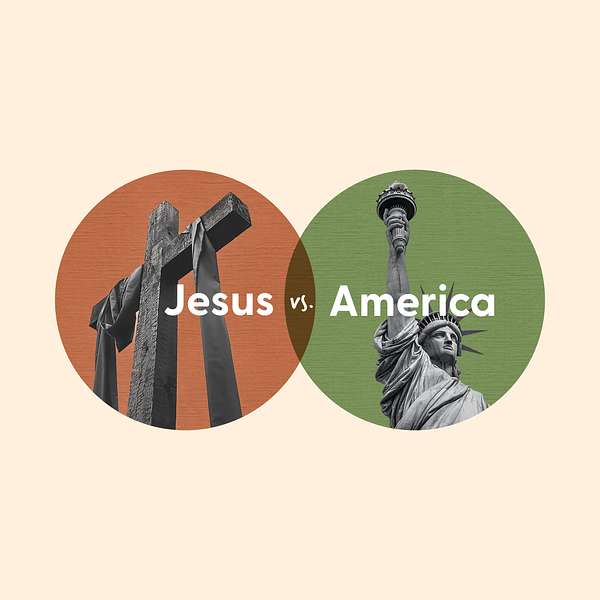
Jesus vs. America
A Gen X attorney sits down with a millennial and a member of Gen Z to untangle the Christian faith from the influence of the American culture.
For over two decades, we have collectively watched young adults walking away from their faith at an alarming rate. Most Christian resources focus on this exodus from a sociological lens, and we have benefited from the work that has been done in this area.
But as three people with on-the-ground experience working with young adults every day, it is increasingly clear that young adults are not so much reacting to Jesus, his message, or even his plan for the church. Instead, many young people are being repelled by a counterfeit and enculturated version of Christianity, a version of Christianity that commingles the American culture and political ideology with the Christian faith. Jesus told us we could not serve two masters, and yet so many Christians have tried to serve both the teachings of scripture and the dictates of the American culture. Young adults have taken notice, and they want nothing to do with this tainted form of religion. Many may bemoan the loss of so many young people, but we have often given them the reasons they cite when they leave.
Our podcast is designed to first and foremost untangle the teachings of Jesus and the will of God revealed throughout the scripture from the enculturated version of the gospel that has spread to many corners of the church in 21st Century America. In doing so, we hope to validate what young adults have long suspected, while challenging them to go deeper with Jesus rather than bail out on a counterfeit gospel. We want to demonstrate honest questions and to wrestle with doubts while also encouraging young adults to do the work of seeking answers and working to rebuild their faith.
Jesus vs. America
American Idols Series: Size
Americans are obsessed with size, the bigger the better. In this episode, we examine how this value seeps into the American church and influences the way we approach our faith. We may not even notice how often we rely on size to make decisions or to determine the value of those things we engage with. And when it comes to the church, while we can critique elements of both large and small churches, our main point is that we should put aside our bias towards size and look for better ways to evaluate the health of our churches. As one of the authors we cite has stated, our focus on size within the church has come at a significant price, and peeling apart the American culture’s obsession with size can help us see the cost it is having on our faith.